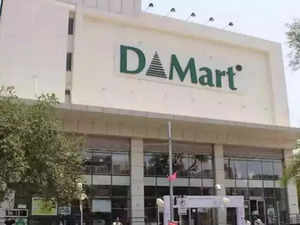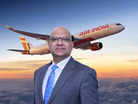 ETMarkets.com
ETMarkets.comBudget with ET
On Saturday, Avenue Supermarts announced that Anshul Asawa will replace Noronha in February 2026, after the latter chose not to continue.
"One of the many reasons I decided not to offer myself is simply, because it's been a long time. Twenty-two years is a good time," he said. "I also believe that the company is in good shape with good systems and processes, high-quality and deep leadership. Someone else can do this as well as I can or even better. It's primarily smooth, easy sailing of a big ship in still waters most times."
Asawa has been appointed CEO-designate, effective March 15, 2025. He currently serves as country head of Unilever in Thailand and general manager for its home care business unit in Greater Asia.
"When studying great retailers that have sustained success over decades, one common thread stands out: the founding family or a major stakeholder group remains involved as custodians of the company's culture. Their presence ensures that the foundational ethos remains intact, regardless of who assumes management roles. While operational elements like product assortment and in-store strategies may shift, the underlying cultural fabric of the organisation must be preserved. The new CEO, therefore, is not here to change the company's culture but to align with it and carry it forward," Noronha said.
Noronha was handpicked in his twenties by the reclusive investor Radhakishan Damani to head his retail venture, DMart, in 2004. Damani spotted the young account manager with Hindustan Unilever, which had regular dealings with DMart, and had business interactions with him for close to two years before hiring him.
DMart surpassed the ₹50,000-crore annual turnover mark under Noronha, growing from five stores when he joined the company to 387 stores now. Within the physical retail channel, DMart has better operational metrics, such as cost to sales or invested capital, than Aldi and Lidl - the German retailers often seen as benchmarks for discount retailing - and runs some of the leanest retail operations globally. At nearly ₹36,000 per year, DMart generates almost three times the revenue per retail square foot than grocery rivals such as Reliance Fresh and Spencer's.
"Our approach might seem unconventional - we've never been guided by a grand long-term vision. Instead, our focus has been on running the company efficiently, offering meaningful products and formats to customers, and ensuring customer satisfaction with every interaction; also, making DMart an aspirational workplace for a hardworking workforce to enter management, even if they come from relatively weak economic and academic backgrounds," Noronha said. "For over two decades, we have refrained from projecting where we want to be in the future. Our success has been rooted in staying customer-centric and adaptable rather than chasing a big-picture narrative."
After over two decades, the relationship has resulted in a windfall of ₹4,700 crore for Noronha, thanks to the 1.95% stake or 12.6 million shares he holds in the company.
With an increasing proportion of Indian consumer purchases being unplanned and of low-to-moderate order value, there's been a rising demand for instant fulfilment - a space where DMart doesn't operate. This demand is currently served by quick-commerce platforms like Zepto, Swiggy Instamart and Zomato's Blinkit. For most fast-moving consumer goods companies, online channels now account for 10-12% of overall sales, with quick commerce making up a third of that.
Sales for Avenue E-Commerce, the online subsidiary started seven years ago, in fiscal 2024 stood at ₹2,899 crore, while posting a net loss of ₹185 crore, according to the latest annual report. Online business brand DMart Ready posted a loss of ₹194 crore on sales of ₹2,202 crore in FY23.
(Catch all the Business News, Breaking News, Budget 2024 Events and Latest News Updates on The Economic Times.)
Subscribe to The Economic Times Prime and read the ET ePaper online.
Read More News on
(Catch all the Business News, Breaking News, Budget 2024 Events and Latest News Updates on The Economic Times.)
Subscribe to The Economic Times Prime and read the ET ePaper online.









































 Get Unlimited Access to The Economic Times
Get Unlimited Access to The Economic Times
